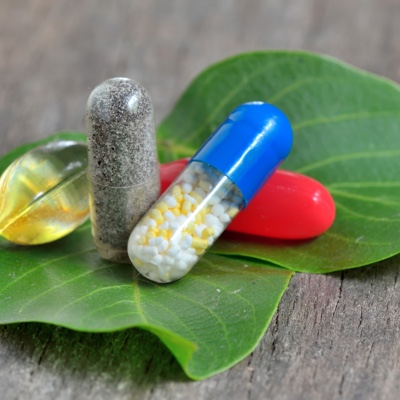To Visit Online Pharmacy Click HERE ↓
Debunking Myths about Lipitor and Heart Disease
Why Lipitor Doesn't Inevitably Cause Severe Muscle Damage
I remember a patient who feared that taking Lipitor would cause muscle catastrophe; a brief story can reframe that anxiety. Clinical trials and decades of use show severe muscle injury is uncommon, while mild muscle aches occur more frequently and often improve with time or dose changes. Physicians monitor symptoms and blood tests, so problems are caught early.
Teh risk rises with drug interactions, high doses, older age, or certain medical conditions, but most people tolerate statin therapy. Lifestyle changes, careful dose tuning, and switching agents often manage side effects. Patients should report unusual or persistent pain promptly; Occassionally simple adjustments prevent serious outcomes and allow continued protection against heart attacks and improve overall wellbeing.
| Evidence | Takeaway |
|---|---|
| Large trials & monitoring | Severe cases are rare; early detection helps |
Statins Alone Aren't Responsible for Liver Failure Risks

At a clinic I once sat with a worried patient who’d read about catastrophic liver failure linked to cholesterol drugs. I explained that while mild liver enzyme rises can occur, true liver failure is rare; most cases are identified early and resolve when therapy is adjusted. Treatment with lipitor has decades of data showing few serious hepatic events, and routine blood tests help catch problems before they escalate.
Clinicians know certain factors raise risk—heavy alcohol use, undiagnosed liver disease, or interacting medications—so they screen and counsel patients. Liver enzyme changes are often asymptomatic and Occassionally transient; stopping or changing the statin usually suffices. Broad claims that statins inevitably wreck livers ignore nuance, monitoring, and evidence.
Lowering Cholesterol with Lipitor Reduces Heart Attack Risk
She remembered the night her father collapsed, a stark motivator that led her to meet with a cardiologist. He explained how statins lower LDL cholesterol and stabilize plaque, reducing the chance of clot formation. Large trials show that drugs like lipitor cut heart attack risk by slowing atherosclerosis and lowering inflammation, turning fear into measurable prevention.
That science translates into concrete numbers: each 1 mmol/L drop in LDL roughly reduces major vascular events by about 20–25%. Side effects are monitored, and therapy is tailored, so patients recieve benefits while minimizing harm. For people at high cardiovascular risk, the protective effect is both practical and profound, already changing long-term outcomes more reliably than lifestyle changes alone.
Common Side Effects Are Often Mild and Manageable

I remember the moment my doctor suggested lipitor after my yearly checkup; she explained risks and benefits plainly, which eased my worries. Patients often fear dramatic complications, but most reactions are mild and temporary, such as muscle aches or digestive changes that resolve on their own.
Clinically, labs help monitor liver enzymes and muscle markers so problems are caught early. Serious outcomes like rhabdomyolysis are rare, and physicians tailor dosage or switch drugs if issues occassionally appear. Open dialogue and routine testing make treatment safer.
Lifestyle changes plus medication often improve outcomes; never stop suddenly without consulting your clinician. Understanding common effects and staying informed lets people balance benefits and small inconveniences while reducing heart attack risk. Regular follow-up and simple adjustments often prevent escalation, and most people acomplish treatment goals with modest provider support. Ask and report symptoms early.
Natural Remedies Can't Substitute Lipitor for High Risk Patients
A patient I followed tried teas, fish oil and dramatic diet changes before accepting lipitor, seeking a natural fix. Her fear of side effects was intense, but her history of coronary disease made the choice clear: medication markedly lowered future heart attack risk.
Evidence matters: supplements can help healthy people, but for high-risk patients they are insufficient.
| Option | Effect |
|---|---|
| Herbs | Unproven |
| Lifestyle | Helpful |
| Statin | Proven |
Why Personalized Risk Assessment Beats Blanket Treatment Advice
A clinic visit once showed me why one size fits all rules fail: an energetic sixty year old with borderline LDL and family history needed context not fear. Personalized risk assessment weighs age, blood pressure, diabetes, genetics and other meds, revealing who truly benefits from atorvastatin and who may only Occassionally need close monitoring.
Using validated ASCVD calculators and a frank conversation about goals lets clinicians tailor therapy and avoid unnecessary medication. Regular monitoring catches rare problems early, and combining lifestyle changes with appropriate statin dosing amplifies benefit. Patients deserve balanced information about absolute risk reduction and potential side effects so they can make an informed choice. Personalized plans change over time, with deprescribing when risk falls rather than fear based blanket rules. This tailored strategy improves outcomes, lowers anxiety, and supports shared decision making now. FDA label MedlinePlus atorvastatin



Pharmacy Hours
Mon - Fri: 09:00 am - 5:00 pm
Sat-Sun: CLOSED
After hours give us a call and we will arrange delivery for you.

